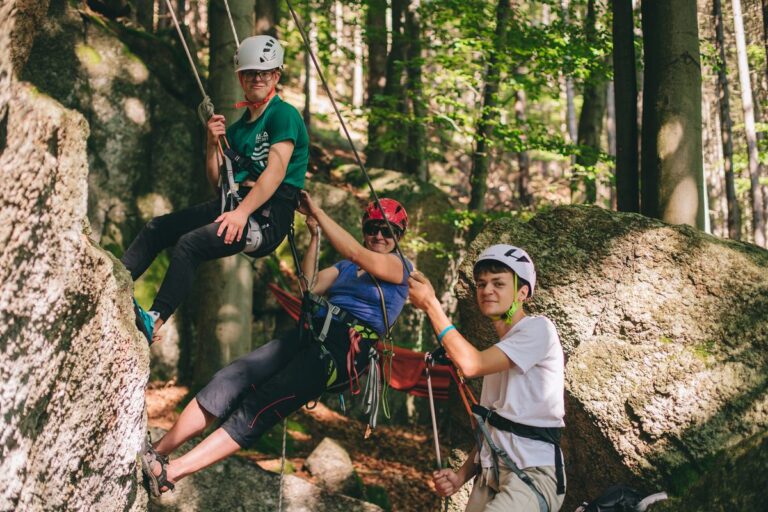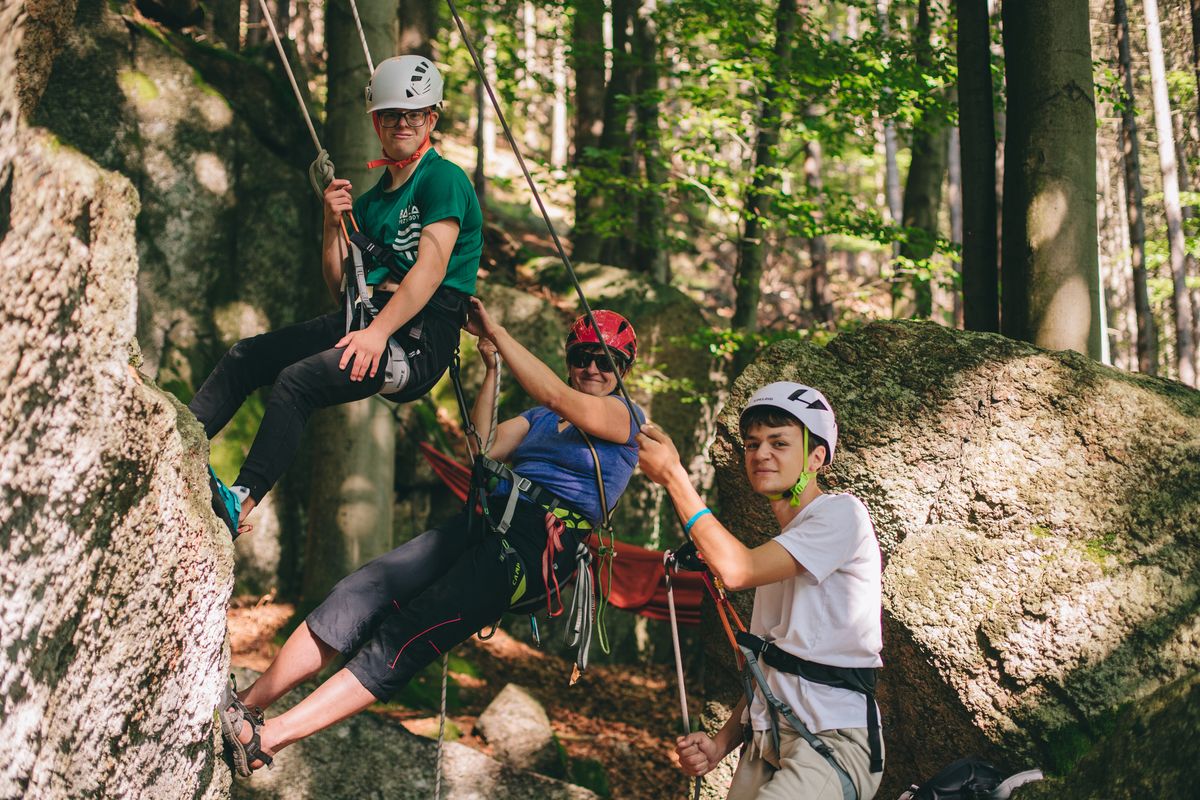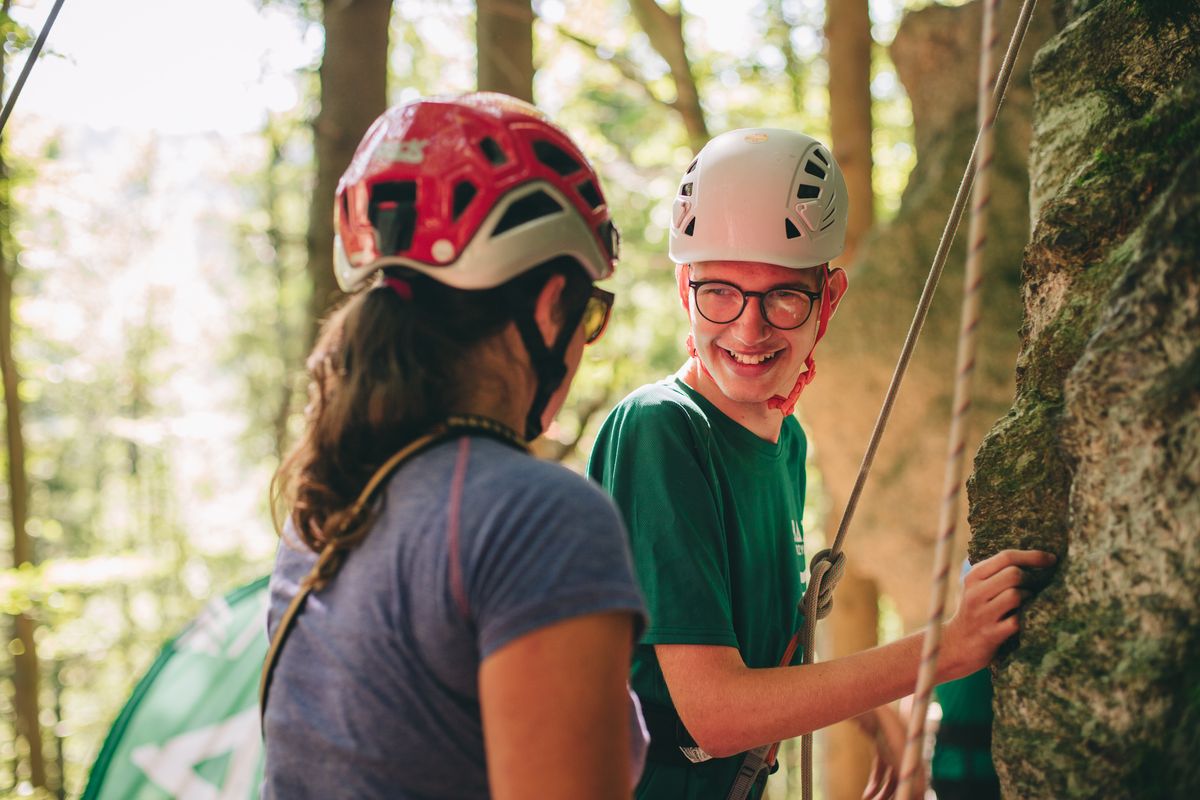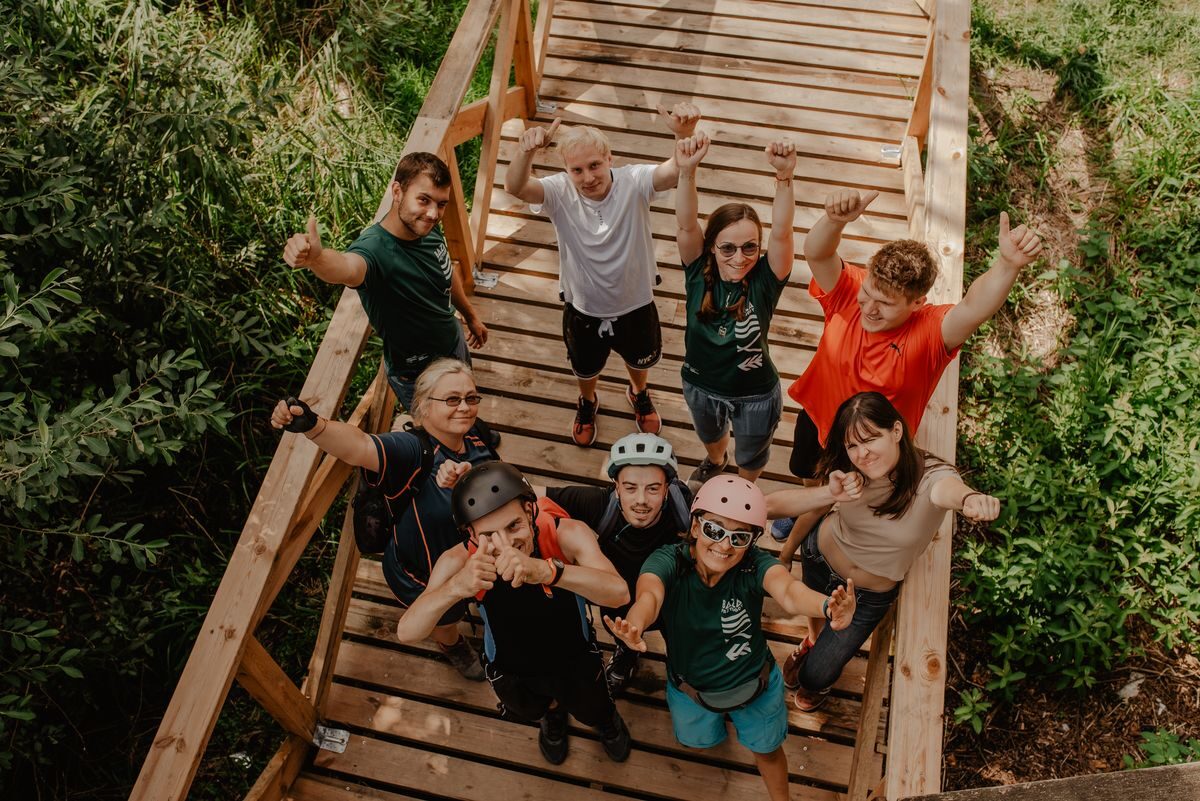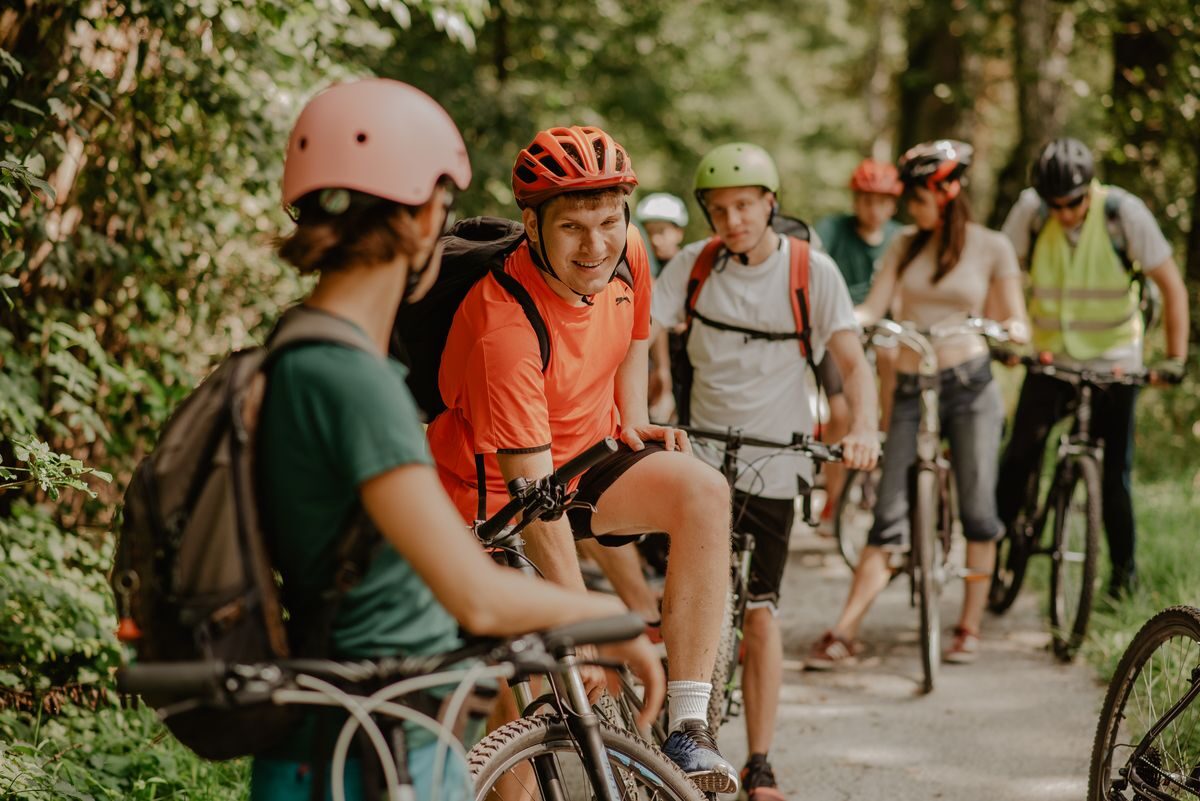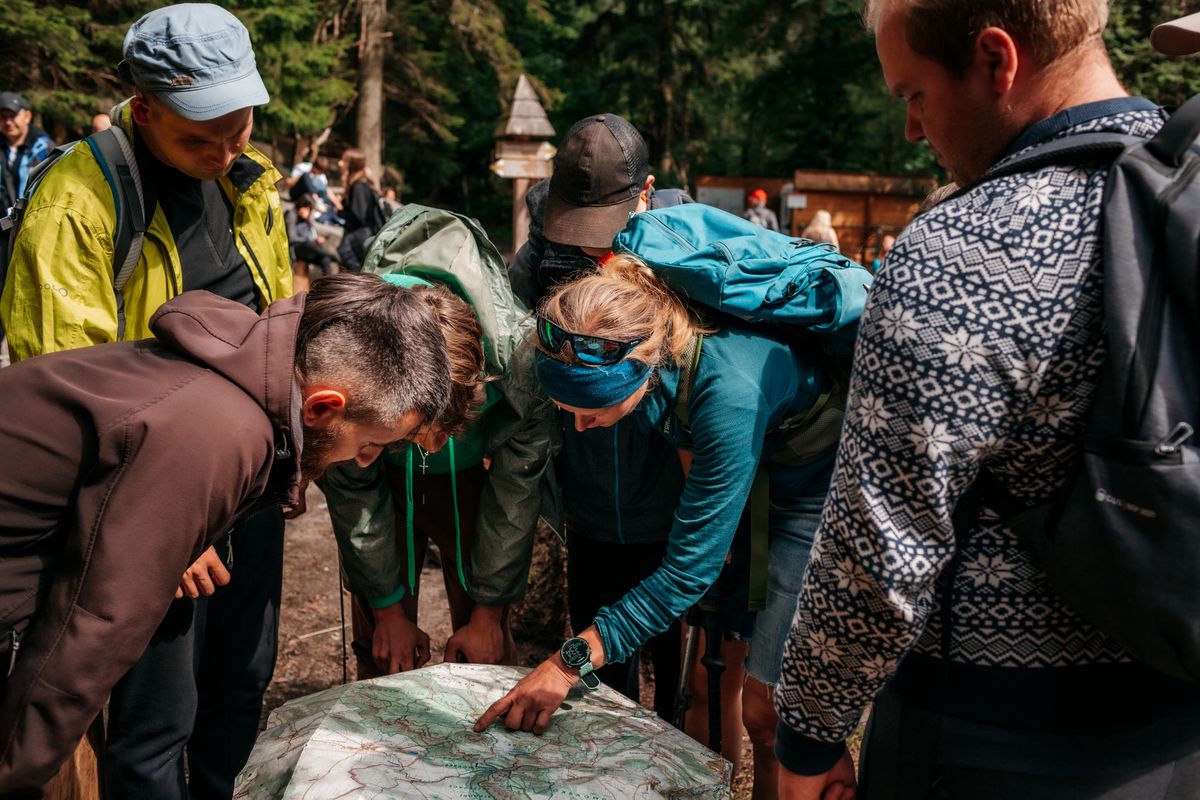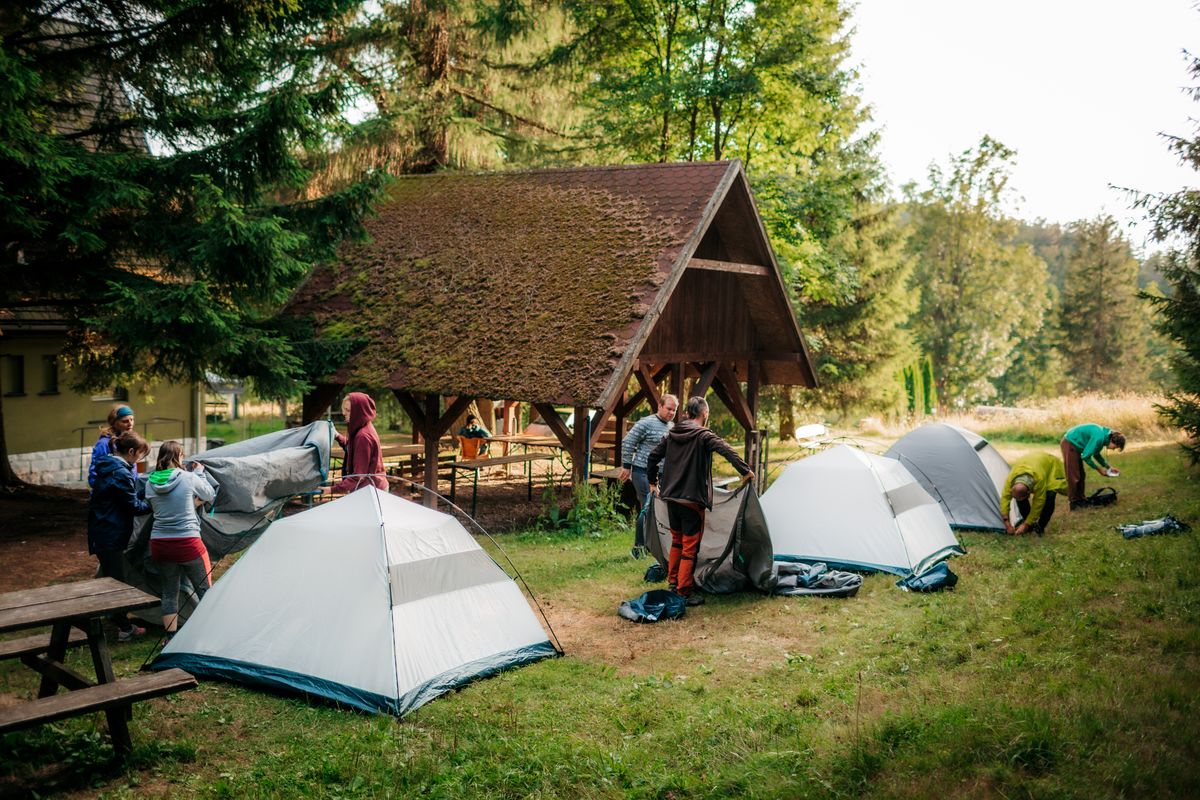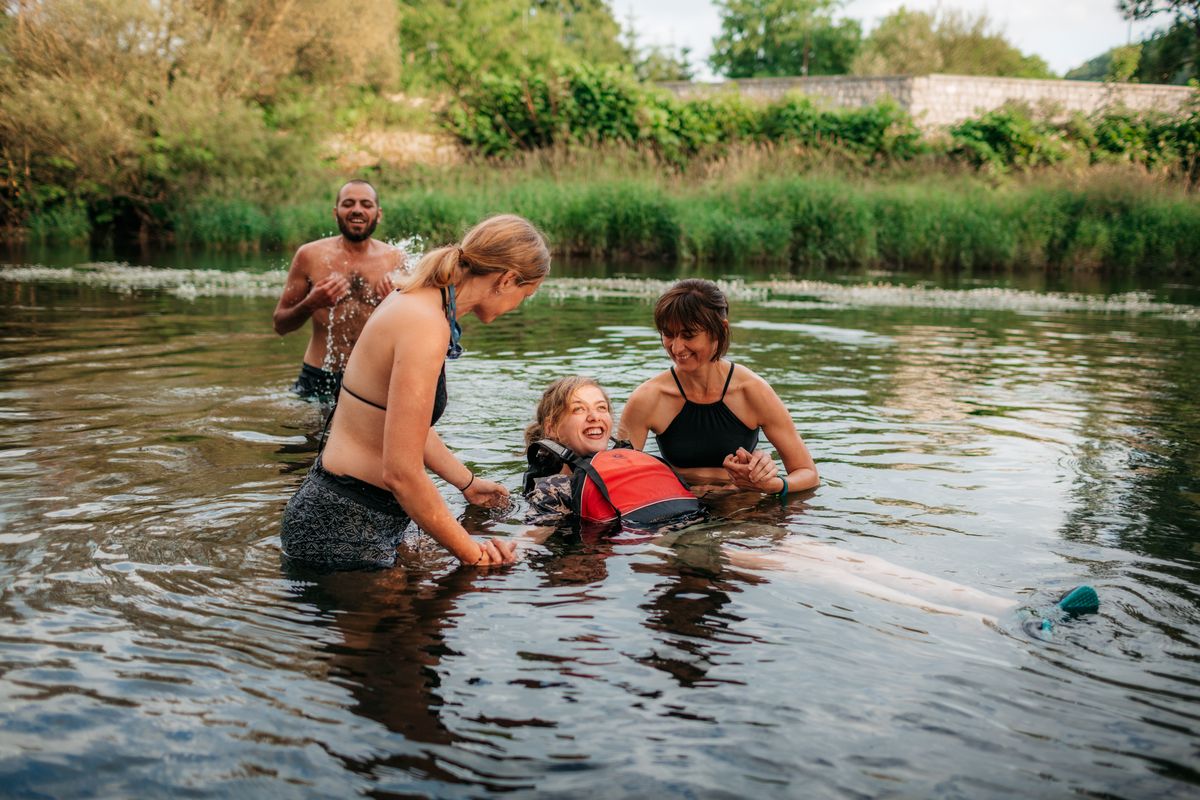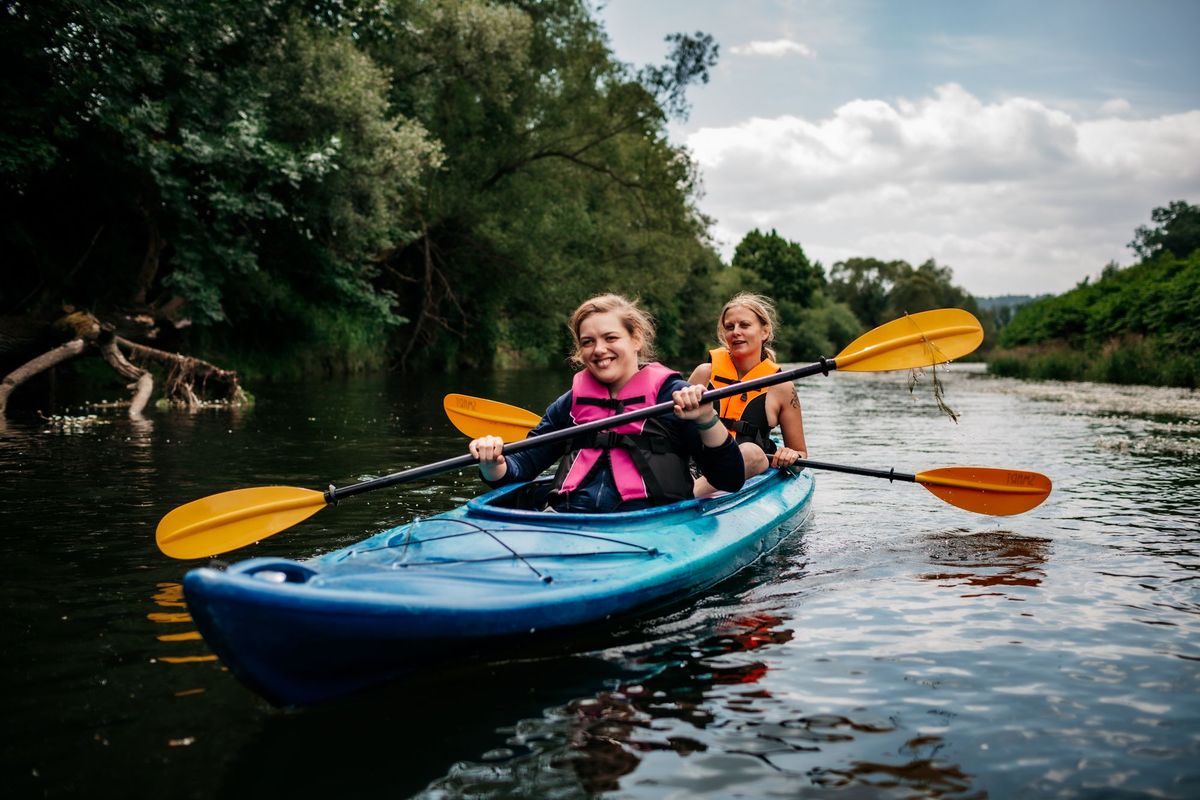Project: Adventure Base – Activity and Integration Centre
Area 2: Promoting social diversity and preventing exclusion
We all get tired sometimes. We feel that we have had enough of everything. We need a breather, somewhere away from the overload of stimuli. This is when we choose to go for a walk in the park or the forest, spend time by the water, or hike in the mountains. However, there are some people for whom this kind of recreation is unavailable or difficult to undertake: people with disabilities and their relatives. In response to their needs a special place has been established in Wrocław to help them experience beneficial contact with nature.
This is the ‘Base’ Outdoor Activity Centre, run by the Imago Foundation. It offers therapeutic excursions based on contact with nature, for both people with disabilities and their family members. The former can finally overcome limiting barriers and satisfy their deficits, while the latter get the chance to have time for themselves and a much-needed break.
“Ever since I can remember, I have been very physically active – swimming, playing table tennis, taking part in competitions. Unfortunately, when I went away to university, it turned out that I had systemic lupus erythematosus, which was slowly destroying my body. As time passed, I felt it more and more,” Maja Grabowska said, a client of the Imago Foundation.
“First I developed epilepsy, and in 2016 I sat in a wheelchair due to paresis in my lower limbs and left arm”, she said. “I trained intensively at home all the time, a friend even persuaded me to go to the gym. However, after another operation, a long healing time, an aggravation of the disease and as a result of the lockdown, I withdrew from activities outside the home. I couldn’t find myself, it seemed impossible”.
“I am blind. Blind people often have problems with balance, coordination etc. Being physically active makes me feel better and enables me to move more safely, independently with a white cane. It is also a good remedy for fatigue after intellectual work. I started training at home, doing simple physical exercises. Four years ago I started going to the gym and swimming pool on a regular basis. I also became interested in running”, Andrey Tikhonov shared his experience.
Maja and Andrey, like many other people with disabilities, lacked contact with nature. For able-bodied people, going for a walk in the park, a trip to the mountains or a camping trip is not very difficult. It is enough to leave the home, pack a backpack or get on a train… For people with disabilities, it becomes much more complicated.
Wilderness Therapy, or what?
“Three years ago, we realised that there was an unmet need for the beneficiaries of the Imago Foundation’s activities to be in contact with nature. We also knew that the support offered to people with disabilities in Poland consisted mainly of working in closed spaces of support centres, occupational therapy workshops and day care centres. This is why, we started looking for an appropriate solution that would be tailored to the needs of the participants of our activities”, explained Magda Stempska, coordinator of the ‘Base’ Outdoor Activity Centre.
“We searched for a solution both in Poland and abroad. Eventually, we found it in Spain, where the Experientia Association ran therapeutic and development programmes for young people at risk of social exclusion and their families, using the method of Adventure Therapy. The positive impact of therapy based on contact with nature was so convincing that we decided to use this method in our work with people with disabilities”.
In autumn 2021, the Imago Foundation opened the ‘Base’ Outdoor Activity Centre, which offered support to people with a range of disabilities through therapeutic development programmes in a natural environment. So far, Wilderness Therapy (a therapy based on immersing oneself as deeply as possible in the wilderness and cutting oneself off from excessive stimuli) and Adventure Therapy (a therapy based on challenging participants in nature), have been used for working with troubled youth. In case of the therapy of people with disabilities, this is a novelty on a national scale.
What does it look like in practice?
“We implement our programmes so that they can be accessible to people with different degrees and types of disabilities (blind people, wheelchair users, people with intellectual disabilities, people with developmental disorders, etc.). In practice, we organise trips into nature, for one or several days. These include mountain treks, trips to the forest, canoeing, stand-up paddleboarding or camping together with elements of bushcraft: sleeping in tents, cooking over a fire, etc.”
Importantly, these are not just excursions but rather a shared immersion in a group process that goes much faster in nature. “We work in small groups, challenge participants and plan therapeutic activities through which they face their weaknesses, we train them to recognise and name emotions, and learn new social skills,” the Adventure Therapy trainers explained.
“The group process and the work with the psyche and emotions are paramount in our programmes, but don’t forget the concrete hard skills that participants of the trips acquire. It is often the case that even people with minor deficits pitch a tent for the first time and spend the night in it, or learn to use a sharp knife in our classes!”, Agata Włodarczyk, facilitator of Adventure Therapy programmes, said.
Importantly, this is not a one-off experience. Each person who applies to participate in the Imago Foundation’s therapeutic programmes is encouraged (as the idea of nature therapy is to ‘invite’ and not force an activity) to participate in the excursions at least three times. Thus, the positive change that has begun during the first trip will have a chance to consolidate. However, the therapeutic process starts long before the trip, when participants and staff meet to get to know each other, talk about expectations and fears and discuss how to prepare for the trip, e.g. how to dress, what to pack and what not to take with them.
The next stage is the expedition itself and what happens there, both on a technical and task level (climbing to the summit, building a camp, etc.), and on a therapeutic and developmental level (overcoming one’s fears and difficulties, training in social skills or discussing the emotions that arose during the day). The third stage lasts a few weeks or even months after the excursion and is often no longer visible to the facilitators. Group members then share experiences, consolidate new ways of behaving and often also prepare for the next trip.
Expeditions into nature are not the only thing that the ‘Base’ Centre offers. The Imago Foundation encourages people with disabilities to try their hand at climbing on an artificial wall and in the rocks. It conducts accessible climbing classes adapted to the needs of people with physical and sensory disabilities as well as therapeutic climbing classes for children and young people with intellectual disabilities.
Therapy in nature works
“After discussing my difficulties, I was invited to take part in…. canoeing! Suddenly, something that might have seemed a complete abstraction was close at hand (or rather, a paddle). It worked, my love of the water also returned and canoes became my new way to relax. Just when it seemed that the pinnacle of the impossible had been reached, the opportunity to take a class on the climbing wall appeared. It’s not feasible, I thought. And yet!”, Maja said, with satisfaction.
The main principles of this therapeutic method are precisely to be in nature, to challenge yourself in new ways and at the same time to get out of your comfort zone. Adventure therapy brings all the benefits. From the development of social skills, improved wellbeing, physical development, getting to know oneself in relation to others, to increased independence and self-confidence.
“With the Imago Foundation, I have climbed the Trójmorski Wierch and Śnieżnik summits, and I also attend climbing classes,” Andrey shared his experiences. I really like the fact that after the classes or excursions we have a scheduled time to talk, summarise and share our impressions.”
“During the meetings, I not only met new fantastic people and gained self-confidence, but also greatly improved my functioning and acquired skills useful in everyday life,” Maja described.
The Imago Foundation’s Adventure Therapy activities are not only time spent in an active way, but also a great form of rehabilitation for people with various disabilities as well as the training of social skills. “In addition to the opportunity to try out and learn about new sports, we have time to talk, get to know each other better, and there is space to tell what we liked and what was difficult. The unique atmosphere and openness allows us to be 100% ourselves and feel good about ourselves, which is extremely important to me”.
Respite care and fantastic adventure
The Imago Foundation was the first NGO in Poland to start working with people with disabilities using Wilderness Therapy and Adventure Therapy. As a forerunner, it is now training staff of other NGOs in these therapeutic methods so that they too can start using them when working with their clients.
The Foundation is not only mindful of its clients, but also of their parents and carers. Let’s not forget that everyone needs a break. This is especially important if you are a carer of a person with a disability.
Parents and carers of people with disabilities cannot take a day off. “80 per cent of support services are provided by family or closed relatives, and only 20 per cent by professionals”, Don Williamson, (until recently) president of the Internatonal Short Break Association reported. Such needs of parents and carers are now being addressed by the Imago Foundation.
“Mikołaj and climbing? When I heard about this proposal, I decided it was a waste of time,” dad of Mikołaj, a participant in the climbing classes, said. “Even after the first class I didn’t quite believe that Miki would at least climb the first ‘stone’. Well, now I am glad that I was so wrong. Seeing at the last class how high he climbed, I decided that the girls from the Foundation are working miracles”.
“I have noticed a joy in Mikołaj on Thursday evenings when we go to the wall. I think the wall builds my son’s self-confidence and allows him to integrate with classmates similar to him,” the proud father said. “For me, the time spent waiting for Mikołaj to come back ‘from the hights’ turned out to be time just for me! I read and relax after a long day at work and it is time just for me! That’s why Miki and I are looking forward to the next climbing session from Thursday to Thursday”.
The Imago Foundation is keen to convince the unconvinced. It wants to encourage people with disabilities and their carers to spend more time actively in nature. “Our programmes are a form of therapy that combines activating participants to take up challenges in nature with respite care for their parents and carers”, Agata Włodarczyk from the Foundation stated.
Paweł’s mother also took part in the Adventure Therapy project with her son. “For me and for Paweł it was a fantastic adventure. For me, spending a whole day in nature was a good time to get away from the hustle and bustle of the city and catch my breath. The same was for Paweł. He strengthened friendships with his colleagues. And above all, he has learned to overcome his fears and limitations. My son is panicky about water. I thought he wouldn’t dare get into the water, into a canoe. And yet… He did it…”, the mother said. “For me as a mum, it was also a lesson. We don’t believe in our children, in the fact that there are possibilities in them that we parents sometimes no longer see”.
Photos: Kalina Żaczek, Aleksandra Osak, Marta Sobala
This is the promotional material from the Imago Foundation. The article appeared on the kobieta.gazeta.pl portal.
